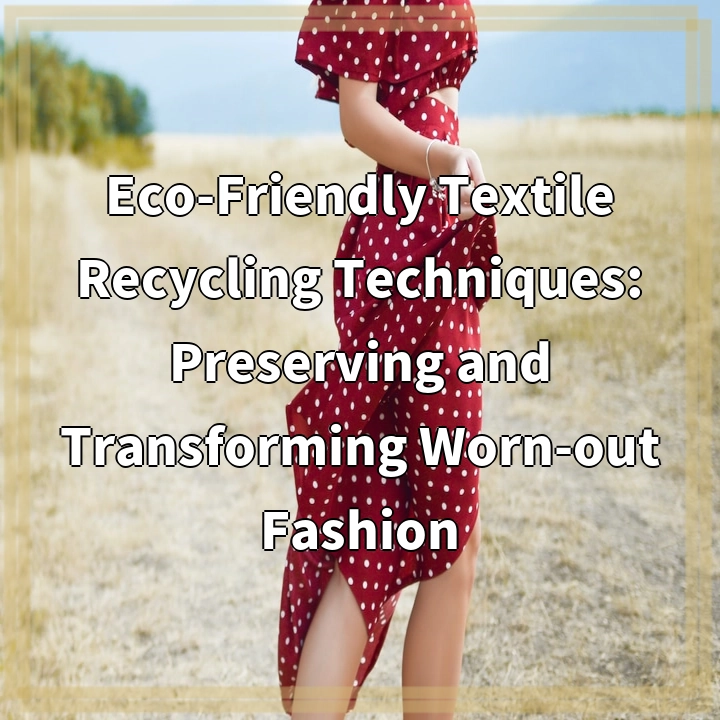
What is Eco-Friendly Textile Recycling?
Eco-Friendly Textile Recycling refers to the process of reusing or repurposing unwanted or worn-out textiles in an environmentally conscious manner. It involves diverting textiles from landfills and finding innovative ways to give them a new lease of life.
Real-World Problems Associated with Textile Waste
Textile waste presents a significant environmental challenge globally. Fast fashion and changing consumer trends have led to a surge in clothing production and subsequent disposal. Here are some real-world problems associated with textile waste:
1. Environmental Impact
Textile production involves extensive use of water, energy, and chemicals. When textiles end up in landfills, they contribute to pollution and generate harmful greenhouse gas emissions. By reusing and recycling textiles, we can reduce the overall environmental impact of the fashion industry.
2. Resource Depletion
The production of textiles requires the use of valuable resources such as raw materials (e.g., cotton, wool) and energy. By recycling textiles, we can conserve these resources and minimize the need for new fabric production, helping to preserve our planet’s finite resources.
3. Landfill Overflow
Textile waste, when not properly managed, can quickly fill up landfills. This adds to the burden on waste management systems and results in the need for more landfill space. Recycling textiles reduces the volume of waste sent to landfills, helping to alleviate this issue.
4. Chemical Pollution
Textile manufacturing often involves the use of toxic chemicals, such as dyes, bleaches, and finishes. When textiles are improperly disposed of, these chemicals can leach into the soil and waterways, posing a threat to ecosystems and human health. Implementing eco-friendly textile recycling techniques can minimize chemical pollution.
5. Social and Economic Impacts
Many textile production processes, especially in developing countries, involve exploitative labor practices and poor working conditions. By encouraging textile recycling and more sustainable fashion choices, we can promote fair labor practices and create a more equitable and ethical fashion industry.

Solutions to Eco-Friendly Textile Recycling
Addressing the real-world problems associated with textile waste requires practical solutions and collective action. Here are some key solutions:
1. Recycling Initiatives
Establishing and supporting recycling programs dedicated to collecting and processing textile waste is crucial. This includes creating drop-off points for textile recycling and partnering with organizations that specialize in eco-friendly textile recycling techniques.
2. Upcycling and Repurposing
Encouraging and promoting the upcycling and repurposing of textiles allows for the creation of new products from old ones. This can include transforming old garments into accessories or utilizing textile waste in home decor, reducing the demand for new fabrics.
3. Education and Awareness
Increasing public awareness about the environmental impact of textile waste and the importance of sustainable fashion choices is vital. Education campaigns can help consumers understand the value of textile recycling and make conscious decisions when buying and disposing of clothing.
4. Collaboration and Innovation
Fostering collaboration between designers, manufacturers, and recycling facilities can drive innovation in eco-friendly textile recycling techniques. By working together, new methods for recycling and repurposing textiles can be developed, paving the way for a more sustainable fashion industry.
5. Sustainable Fashion Practices
Encouraging the adoption of sustainable fashion practices, such as designing clothes with longevity in mind, using eco-friendly materials, and implementing circular economy principles, can significantly reduce textile waste and promote a more sustainable fashion industry.















